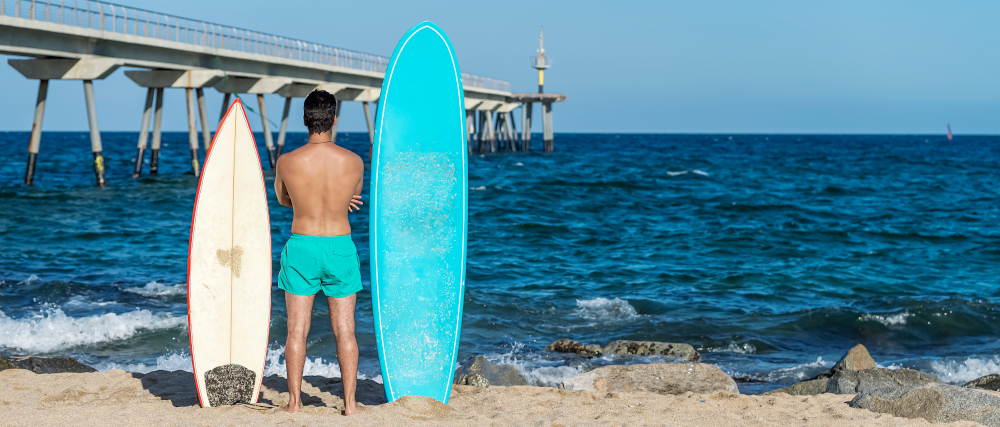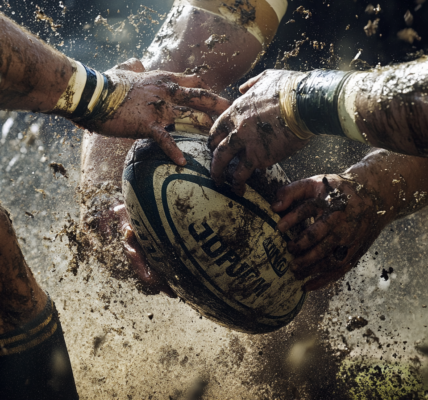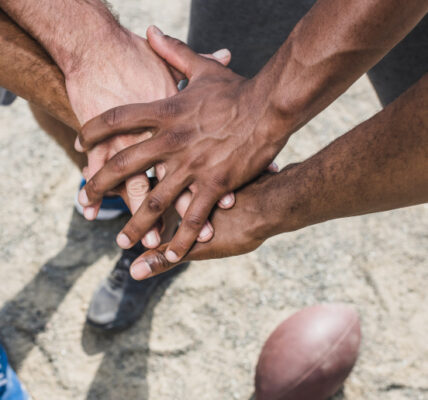There’s a smell in the air before a coastal match in South Africa. Not sweat. Not boot polish. It’s sea salt. Tangled in curls, trapped in collar seams, and thick in the air that players suck in just before the kickoff whistle. These are rugby towns with surfboards stacked outside changing rooms. Towns where lineouts compete with longboards for weekend glory. Where surf wax and scrum caps share the same gym bag.
From Muizenberg to Ballito, a quiet evolution has been taking place. A cross-pollination of cultures that once seemed worlds apart. One about flow, freedom, and waiting on the swell. The other? Bruising discipline. Structure. Ritualized violence wrapped in a team huddle. But here, on the southern edge of Africa, surfers and rugby boys are starting to look like the same people. And it’s not just because of the bleach-blonde hair.
The connection isn’t obvious until you see it. A flyhalf with sand still on his shins from an early-morning surf. A winger whose pre-game ritual includes paddling out for 20 minutes just to clear his head. Coaches whisper about how their most balanced players seem to come from the waves. They have that strange combination of calm and chaos. They know when to wait. And they know when to strike.
Ask anyone who’s played both. Surfing teaches you rhythm, how to read momentum. And rugby? Rugby teaches you how to destroy it. The real magic happens when those skills overlap. That’s where the “saltwater scrum” emerges. These aren’t just players who train harder. They think different. They move different. They hit the gap the way surfers drop into a wave, committed, instinctive, and just on the edge of madness.
In Durban North, one high school coach swears his best players all come from the surf scene. “I don’t know what it is,” he says, “but a kid who can read the ocean can read a defensive line.” In Hermanus, the local team alternates between rugby training and surf club. They don’t separate the two. “It’s about balance,” says one of the boys. “If I get flattened on the field, I shake it off in the sea.”
But it’s more than just training. Surf culture is seeping into the rugby aesthetic. Watch an U19s match on the coast and you’ll see it. Mismatched socks. DIY tattoos. Hair bleached not for fashion but from hours under the sun. These players don’t look like they’re here to die for the badge, they look like they just rolled off a beach towel and decided to cause some damage. Still, the crossover isn’t without tension.
Rugby has always been about systems, team orders, training schedules, tight timelines. Surfing? It’s a rebellion against all that. You wait for the wave. No one tells you when to paddle. That clash shows up in team meetings where players stare out windows, thinking about tides instead of tactics. It shows up in players skipping practice because “the swell was too perfect.”
 Some coaches are furious. Others are evolving. “I used to bench the guys who went surfing before training,” admits one coastal team manager. “Now I just tell them to be back by warm-up.” The players themselves don’t see a contradiction. For them, surfing is training. It’s mental. It’s breathwork. It’s balance. It’s a cold-water reset. A way to come back to the field sharper, smoother, less angry.
Some coaches are furious. Others are evolving. “I used to bench the guys who went surfing before training,” admits one coastal team manager. “Now I just tell them to be back by warm-up.” The players themselves don’t see a contradiction. For them, surfing is training. It’s mental. It’s breathwork. It’s balance. It’s a cold-water reset. A way to come back to the field sharper, smoother, less angry.
Then there’s the attitude. Surf culture has this unshakeable cool, detached but deadly. That same vibe is starting to bleed into post-match interviews. Into TikToks of locker-room antics. Into a new type of rugby player who cares more about the moment than the match report. And in a way, it’s what South African rugby needs.
We’ve had decades of stoicism. Of clenched jaws and five-year plans. But this generation, this salty, sunburnt, sand-between-the-toes generation, wants joy. They want rugby that moves like music. They want the wave and the win. And somehow, they’re starting to get both. Of course, not everyone buys it. “You can’t surf your way to a Bok jersey,” one old-school commentator scoffed on a podcast recently. But maybe you can. Maybe there’s room in this sport for fluidity. For instinct. For wild hair and bare feet and training sessions that start with a paddle-out.
After all, rugby is changing. Positions are less rigid. Offloads are back in style. Speed beats size more often than it used to. In short, the game’s getting looser. More like a wave, less like a war.
And on the beaches of South Africa, that shift is already in motion. Every Sunday, just after dawn, there’s a pickup game at the edge of a beach in Jeffrey’s Bay. Shirts vs. skins. The try line is marked by a pile of flip-flops. The ball is scuffed, half-deflated. Most of the boys still have wetsuits half-zipped down their backs. But they play like it matters. Because it does.
It’s not about trophies here. It’s about something deeper. Something primal. It’s about finding flow. Whether that’s in the perfect wave or the perfect pass, it doesn’t really matter.
They call it the Saltwater Scrum.
And it might just be the future of South African rugby.




